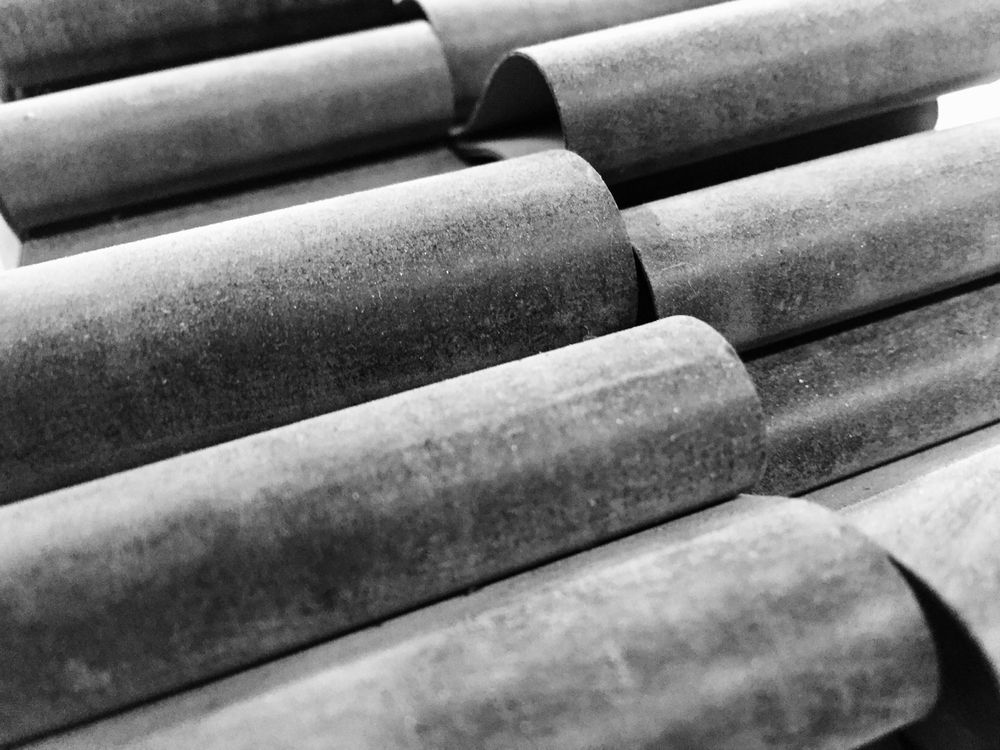
EPDM vs Neoprene: Which synthetic rubber is best for your gasket?
EPDM and Neoprene have earned their reputations as being durable, all-purpose gasket materials. Whether the goal is to make a tight protective seal or silence annoying vibrations, these flexible synthetic rubber gasket materials can be safely used in many industrial and consumer applications.
These materials sometimes get confused for one another, but the choice often comes down to price and properties. EPDM provides an excellent electrical insulator, while Neoprene is more chemical resistant and makes a good thermal insulator.
Neoprene is an elastomer that is also called chloroprene, and is made of a combination of carbon, hydrogen and chlorine polymers. EPDM is an acronym for Ethylene Propylene Diene Monomer, a synthetic rubber that’s derived from polyethylene.
In the following, we’ll unpack the similarities and differences between Neoprene and EPDM to get you started on choosing the best material to make a strong, safe seal.
How are Neoprene and EPDM similar?
Excellent outdoor application
Neoprene and EPDM both withstand outdoor conditions extremely well, withstanding ozone and ultra-violet rays. They also maintain their flexibility, even in extremely cold outdoor temperatures, down to -70 degrees Fahrenheit. They can also weather extremely hot days, enduring for years even in the harshest climates.
Noise and vibration resistance
EPDM and Neoprene both provide excellent noise resistance, dampening the force of sound and vibrations for the end user.
Tough and rugged
Both Neoprene and EPDM rubber are rugged elastomers, with excellent resistance to rips and abrasions.
Tolerate compression
Neoprene and EPDM are rated as having a good pressure set, giving them the ability to maintain their fabricated form, even after compression and elongation.
What are the top advantages of EPDM over Neoprene?
Blocks electrical interference
The chemical properties of EPDM make it an excellent electrical insulator as it blocks electrical interference from entering a component, protecting the products as well as the people using them.
[For a deeper dive read Identifying the proper electrical enclosure gasket]
Resists water and steam
Though Neoprene is water resistant, EPDM is considered the most water resistant of the elastomers, as it doesn’t swell or react to water. EPDM maintains a tight, safe seal, without leaching chemicals.
Withstands higher temperatures
EPDM withstands temperatures as high as 220 degrees F for sponge rubber, up to 250+ degrees for sheet rubber.
Less expensive
From a price point, EPDM is usually the less expensive material compared to Neoprene.
EPDM is resistant to:
- Diluted acids
- Diluted alkalis
- Phosphates
- Polar solvents
- Ketones
- Fireproof hydraulic acids
EPDM is not compatible with:
- Oils, greases and fats (otherwise it becomes swollen)
- Concentrated acid
- Halogenated solvents
- Hydrocarbon fuels
- Aromatic hydrocarbons
[Looking for the right adhesive? Read our blog: Choosing the proper adhesive for an adhesive backed gasket]
How does Neoprene differ from EPDM?
Excels as a thermal insulator
Neoprene is an excellent material when it comes to blocking the conduction of heat from one component to the next.
Oil resistant
Neoprene’s main advantages over EPDM is its resistance to fats, grease and oil. Unlike EPDM, there’s no swelling after exposure to these substances.
Resistant to refrigerants
Neoprene can stand up to Freon and ammonia, making it a reliable seal for refrigeration components.
Chemical resistant
Neoprene was developed to resist many types of chemicals and solvents.
[Learn more in Neoprene gaskets – types and applications]
Neoprene is not compatible with:
- Aromatic and oxygenated solvents
- Esters
- Ketones
- Chlorinated, aromatic and nitro hydrocarbons
Before selecting the right gasket material for your product, conduct a chemical analysis of the components to help you determine whether Neoprene or EPDM would function as ideal gaskets for your product.
To learn more about our proven sealing capabilities, contact SRP and request a quote.
